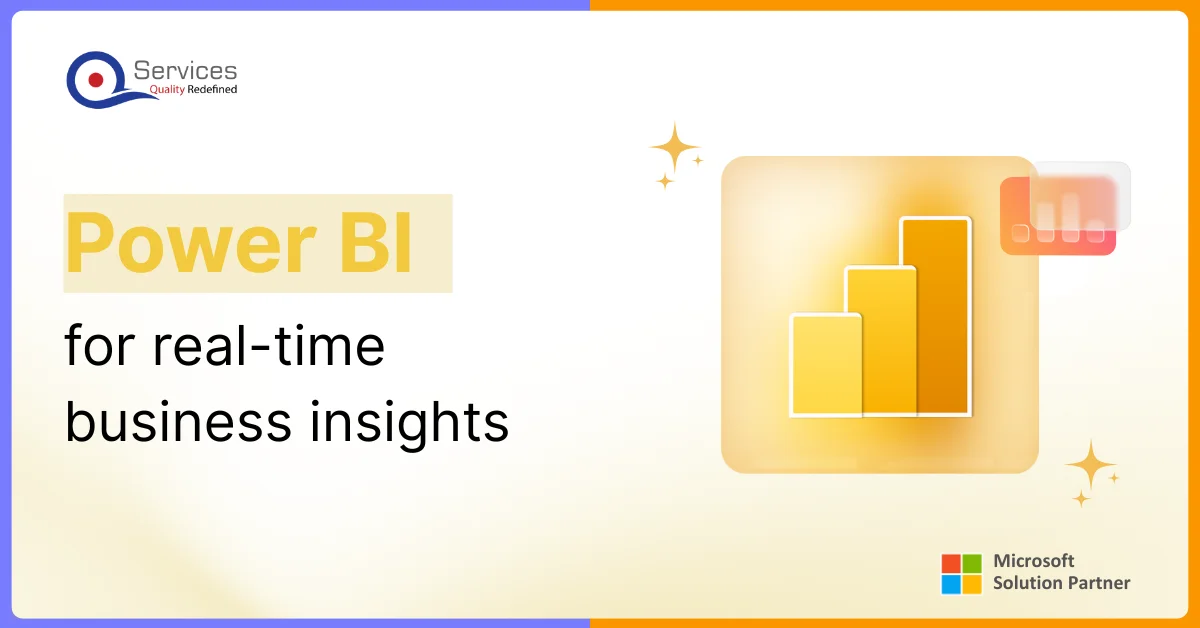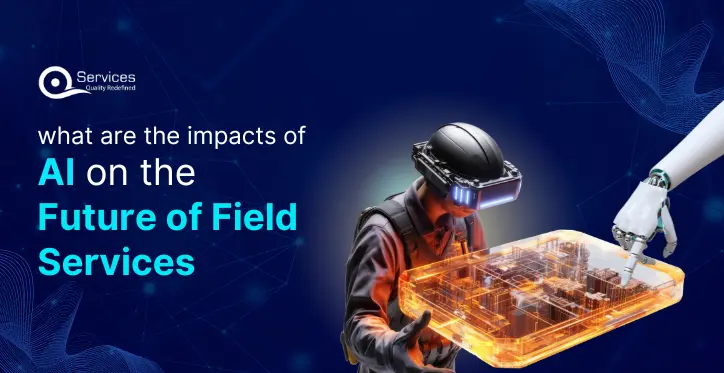
Home » Exploring Agentic Process Automation: In-Depth Insights on Technology and Implementation

Automation is no longer just about following scripts. It is more about thinking, adapting, and acting just like a human would. But here’s the question—can automation actually do that?
Welcome to Agentic Process Automation (APA)—a revolutionary approach that combines AI agents, machine learning integration, and dynamic process management to create systems that go beyond basic task execution.
So, what is agentic mean in this context? How does it redefine process automation solutions? And most importantly, how does it stack up against traditional RPA? In this blog, we’ll break it all down, showing you why APA isn’t just about automation—it’s about intelligence and business process efficiency.
Agentic Process Automation (APA) is a process that combines AI-driven intelligence with automation to create systems that can make decisions in real-time. Unlike traditional automation, which focuses on repetitive tasks, APA introduces automization, meaning systems evolve and improve by learning from data. This approach allows businesses to handle more complex processes efficiently.
While Robotic Process Automation (RPA) automates simple, repetitive tasks based on fixed rules, APA is dynamic. It can adjust workflows and decisions based on real-time data, making it far more flexible, scalable, and intelligent.
APA uses modern technologies to make work easier and faster:
AI & Machine Learning: AI agents make smart decisions and get better over time.
Natural language processing (NLP): Helps the system understand and respond to what people say or write.
Real-time Data Processing: Processes data instantly to act fast when things change.
Workflow Optimization: Automates tasks to keep things moving smoothly without any delays.
Agentic Process Automation is built on a carefully designed architecture that makes automation smarter and more efficient. It uses a layered approach to handle data, make decisions, and execute tasks seamlessly. Here’s a simple breakdown:
Data Ingestion: APA starts by gathering all the necessary data, whether it’s structured (like numbers or dates) or unstructured (like emails or customer feedback). This gives it a complete picture of what’s happening.
AI Layer: Once the data is collected, AI agents jump into the play. They analyze the data and make decisions based on insights that alows the system to automate complex tasks without human input.
Execution Layer: This is where the work gets done. The execution layer manages workflows and makes sure tasks are carried out smoothly and efficiently, from processing requests to handling invoices.
Integration with Existing Systems: APA doesn’t work alone. It easily connects with your existing systems—like smart automation tools, CRMs, and ERPs—using APIs and connectors, ensuring that everything works together seamlessly.
This layered architecture ensures that APA can optimize workflows and drive smarter, faster autonomous decision-making while integrating perfectly with your business’s existing systems.
Get free Consultation and let us know your project idea to turn into an amazing digital product.
Agentic Process Automation is all about using AI to replace human-driven processes. Here’s how it’s reshaping industries with its AI-powered intelligence:
Invoice processing becomes 100% automated with APA, which means faster pay and lesser mistakes. Fraud detection is continuous and AI-driven, always learning and adapting to keep businesses secure without human any human involvement.
APA uses predictive AI to identify when machines will require maintenance. API also manages inventory in real-time to ensure that manufacturers are never caught with too little or too much stock.
APA helps doctors diagnose patients faster by processing medical data almost instantly. It uses AI to pull insights from patient records, and as it keeps learning, it gets even better at improving care. The best part? It does all this without any extra work for healthcare providers.
AI handles demand forecasting and supply chain adjustments in real-time. With APA managing everything from logistics to inventory, businesses can reduce costs and keep customers happy—all while relying on AI for smart decision-making.

APA takes care of the monotonous tasks, letting your team focus on more important tasks. It’s all automated, so things get done quicker—and more accurately—without you lifting a finger.
What’s great about APA is that it doesn’t just follow orders—it learns and gets smarter. The more it works, the better it gets at handling tasks, adapting to new challenges, and even improving over time.
As your business grows, APA grows with you. Whether you’re handling more customers, more data, or bigger tasks, it adapts to your needs without breaking a sweat.
Imagine having all the right data at your fingertips, all the time. APA helps you make decisions faster and smarter by giving you real-time insights that keep you ahead of the curve.
When you automate tasks, you reduce the chances of human errors, which can save you from several mistakes. APA helps ensure everything is done right, every time, and keeps you compliant with industry standards.
With automation shaping the future of business, data security is key. Encrypting and securely storing sensitive data helps keep everything safe from breaches and protects your customers’ information.
Testing APA’s machine learning systems on a regular basis helps businesses ensure that the system is always making the right decisions, free of biases, and boosting productivity without mistakes.
When employees worry about losing their jobs to automation, companies can reassure them by showing how adaptive automation simply removes the repetitive workload, leaving employees with more time for creative and impactful tasks that contribute to company growth.
Implementing APA requires more than just technology – it’s also about getting employees on board. Offering targeted training and fostering open communication can help employees feel comfortable with the change. When people understand how automation improves their work, the transition becomes easier.
The future of Agentic Process Automation is all about making businesses more agile and efficient. With AI agents taking over repetitive tasks and learning from past experiences, businesses can improve their processes and make better decisions, all without a lot of human involvement.
By integrating with digital transformation solutions, APA helps businesses connect different parts of their operations, whether it is responding to customer queries or managing inventory which results in less downtime and more productivity.
And with adaptive automation, organizations can adjust their business workflows easily to meet their new requirements and handle unwanted changes.

With adaptive intelligence at its core, APA is transforming automation in business processes. Traditional automation can be rigid and limited, but APA uses AI and a powerful automation engine to adjust and improve as it learns from real-time data. This means businesses can handle increasingly complex tasks more efficiently, reduce errors, and make data-driven decisions faster. By adopting APA, companies can drive greater productivity, reduce operational risks, and stay agile in a constantly changing business environment.

Pipeline failures can be expensive and harmful to the environment. Companies are using IoT applications in the oil and gas industry to prevent these breakdowns and stay ahead of problems.
![Azure IoT vs AWS IoT vs Google IoT Pricing: Feature Comparison Chart for Enterprise [2025]](https://www.qservicesit.com/wp-content/uploads/2025/03/Microsoft-Teams-vs-Slack-vs-Zoom-TCO-Analysis-for-Enterprise-Organizations-2.webp)
The Internet of Things (IoT) helps businesses run better by connecting devices, collecting information, and improving choices. But picking the best IoT cloud provider can be confusing. The main three are AWS IoT vs Azure IoT vs Google IoT.

In this blog, we’ll explore how these advances are shaping the future of field services and how companies are adapting to stay ahead in a competitive market. What are the key changes that businesses need to embrace to stay relevant and efficient?
AI agents act as decision-makers, analyzing data, learning patterns, and adapting processes to deliver efficient and intelligent automation.
NLP allows APA systems to interpret and process human language, enabling better communication and decision-making based on text and speech data.
Implementation depends on business needs but typically involves assessing workflows, selecting tools, and integrating APA with existing systems.
With proper implementation and continuous monitoring, APA minimizes cybersecurity risks through secure frameworks.
By automating repetitive tasks and optimizing workflows, APA lowers operational costs and minimizes manual intervention.
APA uses AI to continuously monitor and optimize workflows, ensuring processes run efficiently and adapt to changes.
Adaptive automation enables systems to evolve based on new data and insights, making APA capable of handling dynamic tasks.
Regular updates, performance monitoring, and retraining AI models are essential to keep APA systems efficient.
Yes, APA systems use AI to identify patterns and respond to unexpected situations autonomously.
APA is set to evolve with advancements in AI, driving smarter decision-making, deeper automation, and broader adoption across industries.

Founder and CEO

Chief Sales Officer
